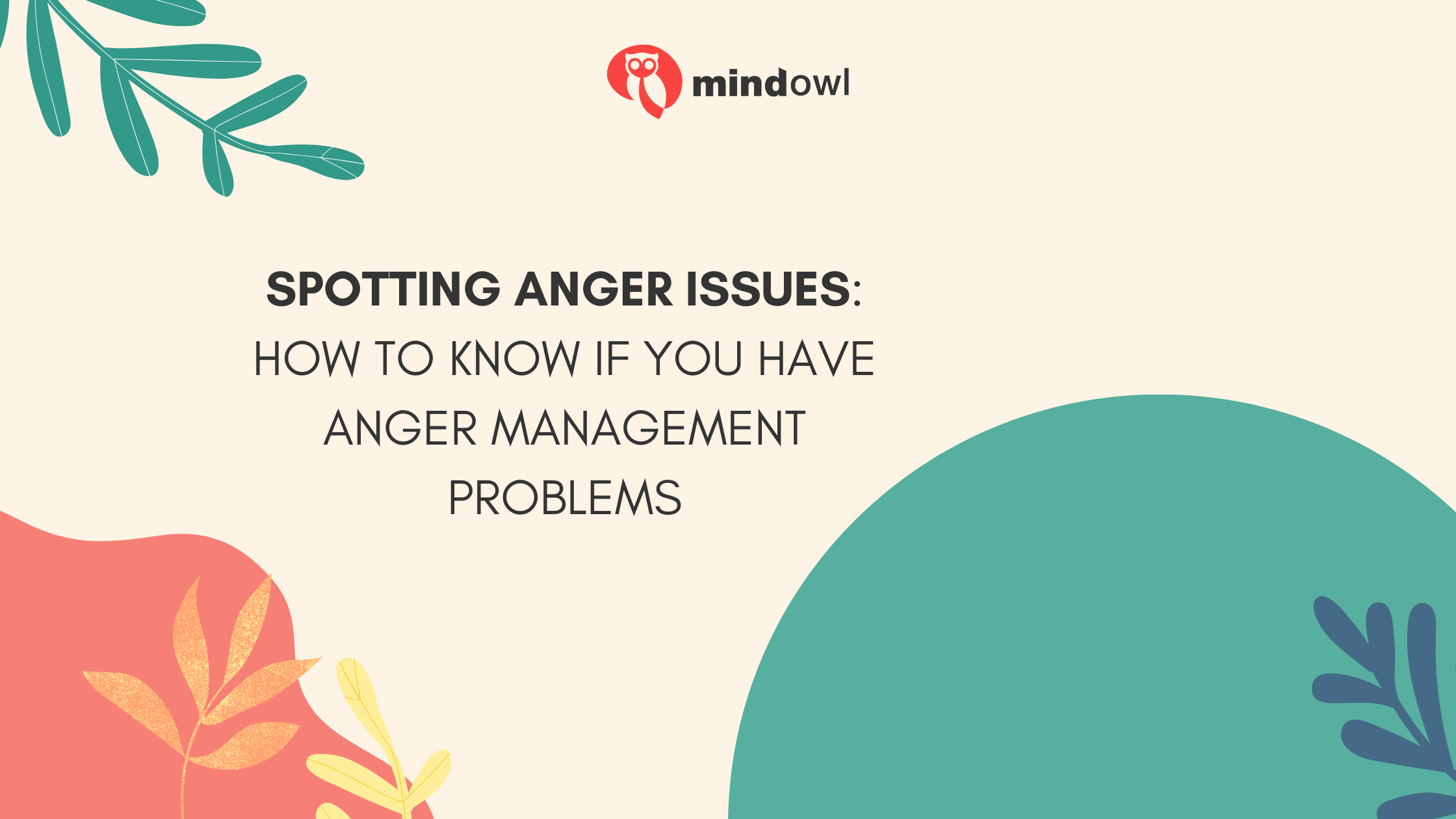Feeling angry can be like watching a kettle boil. It starts slow, then all at once, it’s whistling loudly. Everyone experiences anger. But sometimes, this feeling doesn’t just stop at the whistle. For some, it turns into something bigger and harder to control. You might wonder if your anger is normal or if it’s becoming a problem.
Our article will guide you through spotting signs of possible anger management problems. We’ll talk about how unmanaged anger can harm both your mind and body and share tips on how to handle these feelings better.
Stay tuned – this could be the help you need.
Key Takeaways
- Pay attention to signs like angry outbursts, feeling bad about yourself, and getting easily annoyed.
- Anger can harm your heart and mind. It makes it harder for you to be happy and think clearly.
- Exercise is a good way to deal with irritation and stress. It helps keep your mind calm.
- Depression, oppositional defiant disorder, and intermittent explosive disorder are types of problems related to anger. Knowing them helps in finding the right help.
- Talking about how you feel calmly, learning to cool down before reacting and using relaxation methods are useful ways to handle anger better.

Recognising the Signs of Anger Issues
- Angry Verbal Outbursts
Angry verbal outbursts are loud, sudden expressions of anger. People might scream, shout, or say harsh things. These bursts can scare others and create tension. If someone often explodes in anger over small issues, it’s a sign they may have anger management problems.
This behaviour is linked to intermittent explosive disorder—a mental health condition marked by impulsive aggression.
- Growing Hatred Towards Self
Punishing oneself is a telling sign of inward fury. Many people deny themselves pleasures as a form of self-punishment. This act stems from an anger directed inward, which can spiral into self-hatred.
It’s not just about feeling down; it’s about actively denying joy from one’s life because of this inner turmoil.
Self-loathing might also come out in how we talk to ourselves. Harsh internal dialogues are common, where individuals criticise every action or decision harshly. This constant negative chatter isn’t helpful—it drags you further into a cycle of anger and frustration with yourself.
- Frequent Irritations
Getting easily annoyed over small things might be a sign of deeper issues. If you find yourself getting irritated by things that didn’t bother you before, it could point to stress or underlying emotional challenges.
Things like the sound of someone chewing loudly, people being slightly late, or minor changes to plans can start to grate on your nerves more than they should. This heightened sensitivity often comes hand in hand with feelings of anger bubbling up more quickly.
The Impact of Anger on Mental and Physical Health
Anger can hurt your heart and mind in many ways. Studies show that not controlling anger may lead to heart problems and eating disorders like bulimia. Imagine the stress on your heart when anger makes it beat faster, risking high blood pressure and heart disease.
Your skin might also suffer, showing problems because of the constant state of upset.
Keeping anger inside affects how happy you feel and how well you think. It’s like a storm cloud hanging over everything you do. Anger can make sadness worse or cause feelings of opposition or explosive reactions without a clear reason.
Feeling angry all the time wears you out, making everyday tasks harder to deal with. It takes more than just wanting to stay calm; looking after your mental health is key if anger often controls your actions.
Types of Anger Issues
- Depression
Depression stands out as a complex mental health condition. It brings about a deep sense of sadness and a lack of interest in life. People often mistake it just for feeling sad or blue, but it’s much more overwhelming.
It can make someone lose joy in activities they once loved, affecting their daily life significantly.
This condition doesn’t just upset the mind; it also has physical effects such as changes in appetite and sleep patterns. Those dealing with depression might find themselves getting angry easily over small things—this type of anger is directed inwardly or outwardly, causing harm to relationships or even to oneself.
- Oppositional defiant disorder
Oppositional defiant disorder (ODD) features a pattern of angry and irritable mood, defiant behaviour, and spite. Mostly spotted in childhood, kids with ODD often refuse to follow rules, argue with adults, and act deliberately annoying towards others.
They show signs like frequent temper tantrums, arguing a lot, refusing to comply with requests or rules, and purposely irritating people.
- Intermittent explosive disorder
Intermittent explosive disorder (IED) involves sudden episodes of uncontrolled anger. People with this condition might scream, throw things, or get into fights without a clear reason.
It feels like they lose grip over their emotions during these intense bursts of anger. Mainly, the trouble starts with small annoyances that quickly become large outbursts.
This disorder can stem from various sources—stress in life, genetic factors, and past experiences all play a role.
Approaches to Managing Anger Issues
Anger management therapy teaches coping skills to notice and express anger in healthy ways. Regular physical exercise can help in managing anger by decompressing and reducing stress that can fuel angry outbursts. It is important to recognise and avoid triggers that can lead to anger issues.
Approaches to Managing Anger Issues:
- Expressing Anger: Calmly talk about your feelings, without blaming others.
- Suppressing Anger: Take a moment to calm down and then address the situation with a clear mind.
- Calming Anger Assertively: Use relaxation techniques like deep breathing or visualisation to manage intense emotions without losing control.
Conclusion
Recognising anger issues is crucial for maintaining mental and physical well-being. Frequent outbursts, self-hatred, and irritability could indicate an underlying problem. Seek professional help if you struggle with managing anger effectively to avoid potential harm to yourself or others.
Understanding the signs of anger issues and taking actionable steps towards healthy management can lead to a happier and more balanced life.
FAQs
What are the signs that I may have anger management issues?
If you find yourself struggling with frequent anger outbursts, feeling anger intensely over small issues, or your anger leads to problems in your relationships, it might be time to look deeper. These are clear symptoms of anger issues that shouldn’t be ignored.
Can certain conditions cause more anger than usual?
Yes, indeed. Conditions like bipolar disorder and obsessive-compulsive disorder can make managing emotions more challenging. Anger can also be a symptom of underlying mental health concerns that need professional attention.
How does expressing my anger affect those around me?
Expressing your anger verbally or physically can harm others and damage relationships. It’s important to find healthy ways to manage and express your feelings without causing harm or putting your health at risk.
Is it normal to feel angry all the time?
While it’s normal to experience some degree of frustration now and then, constant or excessive anger is not healthy for you or those around you. Recognising when your temper is difficult to control is key in seeking help.
What steps can I take if I recognise these signs in myself?
Firstly, acknowledging that there might be a problem goes a long way towards finding a solution—seek professional help where necessary, especially if your attempts at controlling your temper haven’t been successful on their own.
Are there any lifestyle factors that could worsen my anger issues?
Certainly – alcoholism and financial stress are just two examples that could exacerbate feelings of rage and frustration; they often go hand in hand with emotional triggers leading up to an outburst.
MindOwl Founder – My own struggles in life have led me to this path of understanding the human condition. I graduated with a bachelor’s degree in philosophy before completing a master’s degree in psychology at Regent’s University London. I then completed a postgraduate diploma in philosophical counselling before being trained in ACT (Acceptance and commitment therapy).
I’ve spent the last eight years studying the encounter of meditative practices with modern psychology.

